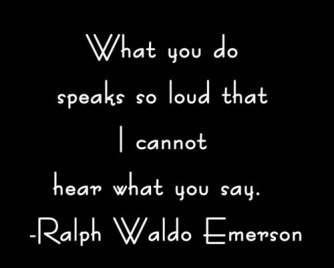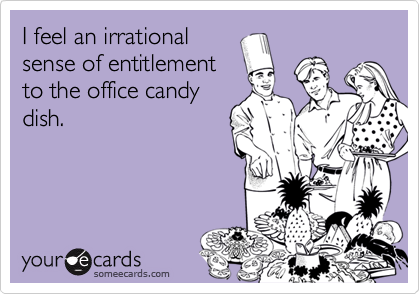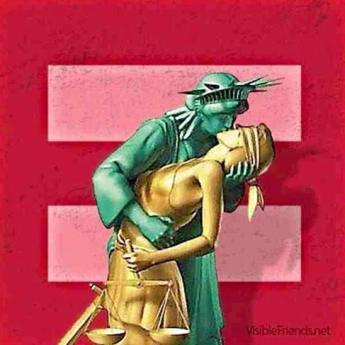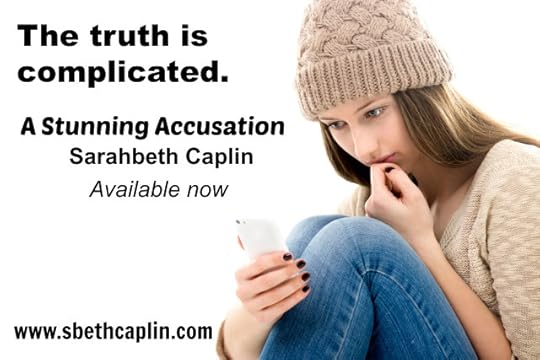Sarahbeth Caplin's Blog, page 46
July 10, 2015
The limits of divine intervention
 Driving home from church one night, I realized I no longer believe in an intervening God. Not the kind described in the Bible, anyway – the God who speaks through burning bushes and rains manna from the sky. When people say God spoke to them personally with the promise of healing, of recovery, or some tangible form of deliverance, I believe it’s real to them. I’m not going to be the Grinch of Joy. But generally I don’t believe that’s God’s go-to method of communication anymore.
Driving home from church one night, I realized I no longer believe in an intervening God. Not the kind described in the Bible, anyway – the God who speaks through burning bushes and rains manna from the sky. When people say God spoke to them personally with the promise of healing, of recovery, or some tangible form of deliverance, I believe it’s real to them. I’m not going to be the Grinch of Joy. But generally I don’t believe that’s God’s go-to method of communication anymore.
I like Harold Kushner’s reasoning that God designed a world that operates by its own rules. Laws of nature do not bend at anyone’s will: they follow a design that doesn’t take social standing or any form of status into consideration. If a man steals a packet of seeds, it would serve him right if they didn’t grow – but grow is what seeds are designed to do, regardless of the circumstances in which they were planted. If a woman is raped, it would be better, obviously, for her not to become pregnant as a result; but the laws of nature do not make exceptions for a violent conception.
I don’t understand the mentality that if one prays hard enough, they can be made exempt from the consequences of nature. Why would God intervene with the way his world operates on behalf of one person, but not all?
This self-protective form of Christianity is distinctly American; a product of modern, technologically sophisticated Western thinking. This is not the Christianity of early Roman martyrs waiting to be thrown to the lions – that radical faith is anything but safe, and that, I think, is how it was designed to be. But today, I listen to story after story of young Christians suddenly realizing the world is unfair only after tragedy becomes personal. God is still good despite the Holocaust, despite the prevalence of human trafficking, and natural disasters that leave millions of people homeless, but suddenly a car wreck that inhibits one’s ability to play basketball throws God’s goodness into question? An illness that was bound to occur as a result of genetics and perhaps poor lifestyle choices means God no longer cares? This, to me, is spiritual immaturity.
I don’t mean to imply that my own faith is far above all this. I am no deeper or mature than the next self-professing Christian, but I am one whose beliefs have been profoundly shaped by personal experiences. I am still learning, as everybody is, and there is no predetermined “life track” in which everyone comes to the same conclusions at exactly the same time. I realize that I must learn patience and compassion for people who haven’t experienced the same hardships – that’s a blessing, not a character flaw. But this twisted idea that some of us are immune to suffering is one I do have little patience for, and reflecting on my own privileged upbringing is a reminder that adversities can happen to anyone in a world governed by the laws of nature and physics, which I believe God created.
I believe God gives us tools to cope with things within our control: strength, courage, wisdom, hope. I no longer pray for events I have no control over, because that is essentially asking God to change the way he ordered the world to work, for reasons no one will understand until we can ask him face to face.
Filed under: Religion Tagged: cancer, Christian culture, Christianity, Controversy, evangelicals, grief, Judaism








July 8, 2015
Shameless summer TV addictions: a review of ‘Chasing Life’
While it’s highly unlikely that another TV show will suck me in like Breaking Bad did, I’ve become semi-addicted to ABC Family’s Chasing Life. The premise is a twenty-something journalist, April, who is about to strike gold in both her career and love life, until a cancer diagnosis threatens to throw it all off-kilter (if you haven’t finished the first season, don’t read on – there will be spoilers).
I know this probably seems like an odd choice of entertainment for me. Why would I want to immerse myself in a cancer-centered drama after losing my dad to cancer? I haven’t even taken the plastic wrap off my Fault in our Stars DVD – it may be a while before I can watch that. I guess I chose Chasing Life for two reasons: 1, it’s ABC Family, so you know there’s going to be way more to the plot than a soapy, Touched by an Angel-esque cancer drama, and 2, sometimes it’s comforting to watch something that lets me know I’m not the only one touched by this, even if the characters aren’t real.
I’ll say this for The Fault in our Stars: it goes out of its way to depict cancer as real, gritty, and destructive as it actually is. Main character Hazel drags an oxygen tank everywhere she goes because her lungs are filled with fluid. She can’t run, play sports, or even make out like other teenagers can without losing the ability to breathe. Love-interest Augustus loses a leg to the disease. I was extremely pleased with the realness in that story. I wonder if the wild success of Fault has anything to do with the rise of “cancer dramas” on TV lately: from Lifetime’s The Big C to Kristina’s diagnosis on Parenthood (which, in my opinion, went absolutely nowhere).
Is Hollywood realizing that cancer patients watch TV too, and might want to watch something that helps viewers understand their struggles? Hardly. Just like pregnancy is the most predictable “twist” in romance genres, so too is cancer on television. Nothing quite tugs at the heartstrings like watching a couple fall in love despite knowing that one of them might not make it.
So where does Chasing Life fall into this? Well, what does this poster from Netflix tell you?
 An attractive woman is sitting on the edge of a casket – filled with lemons! I see what you did there, ABC! Very punny of you. But also how about…melodramatic? And the tagline “cancer sucks”? Yeah, no kidding. How long did it take to come up with that one?
An attractive woman is sitting on the edge of a casket – filled with lemons! I see what you did there, ABC! Very punny of you. But also how about…melodramatic? And the tagline “cancer sucks”? Yeah, no kidding. How long did it take to come up with that one?
But as previously mentioned, it’s ABC Family, so melodrama is an essential ingredient. The cancer angle isn’t enough, of course – the script writers had to throw in a single mom struggling to find a man to date who isn’t secretly married, a grandma realizing that she too shouldn’t give up dating just because she’s in her seventies, a bi-curious sister who is two-timing her lesbian classmate and her boyfriend, a secret half-sister who is the result of April’s dead father’s affair (who just so happens to be a match for April’s bone marrow transplant, ZOMG I DID NOT SEE THIS COMING), and two men who end up falling for April (of course).
I can honestly say, having finished the first season, that the drama is keeping me interested more than anything having to do with the cancer. That’s because April is an attractive working woman with cancer, not a cancer patient who was attractive and wanted to keep her job. There is a difference. The cancer, at times, is treated more like an inconvenience than a genuine life-or-death struggle.
The one time I was tempted to throw in the towel was in the middle of the season when April finally starts her treatment – and is home within a month (only two episodes in TV Time). Sure, she loses her hair, and that’s hard to watch. But does she lose weight? No. Does she even lose her eyebrows (how many people are aware that chemo makes you lose ALL your body hair)? Nope! She’s still cute as she was before, just bald. She looks darling in little knit hats when she goes back to work (oh yeah – she’s back at work by the end of that month, too).
But then I got to the last two episodes, when April relapses. Her oncologist encourages her to let out her anger by swinging a baseball bat at drywall in a “Venting Room” (now that’s a cool idea). And so she does: she’s angry that she has this disease when she’s so young and finally finding her way in life – and rightly so. She’s angry that cancer got in the way of her first real relationship and limits her ability to be intimate. Now that, I get, because I watched my Dad cry a handful of times as it slowly became apparent that he’d never be able to run, coach, play golf, or even walk long distances as the cancer did its work. It’s a tragic, completely unfair thing to happen to anyone at any age, but since April is a character my age, I couldn’t help but wonder how I’d react if it happened to me. So the final episode did make me cry – and when a show can do that, that means it’s a keeper, despite its flaws.
Filed under: Other stuff Tagged: cancer, grief








July 7, 2015
When non-Christians act more Christian than some Christians
“For since the creation of the world his invisible attributes – his eternal power and divine nature – have been clearly seen, because they are understood through what has been made. So people are without excuse.” Romans 1:20 (NLT)
This verse has always struck me as being one of the more universal parts of the Bible (well, maybe not so much the “People are without excuse” part). I always thought it meant that people could be following the laws of God without realizing it by acting with righteousness, having great concern for justice, and compassion for the weak and the marginalized. In this sense, many atheists perhaps have a better understanding of the Gospel than some self-proclaimed evangelicals who go out of their way to condemn those who don’t see things their way, and favor policies that encourage poor people to pick themselves up by bootstraps they never had to begin with.
 We live in a world that defines “goodness” by measuring the number of one’s deeds rather than the condition of his or her heart. Many of us have probably done the right thing out of obligation, or perhaps to preserve our reputations, with not-so-righteous motivations (I’m thinking of twelve-year-old me who didn’t want to follow through with the extra work of a Bat Mitzvah project, in which I was supposed to raise tzedakah for a charity of my choice, because learning the Hebrew was hard enough). To this day I find myself wanting to buy a sandwich for a homeless person out of guilt more than concern for when he will see his next meal. Which, to further complicate things, just makes me feel even guiltier.
We live in a world that defines “goodness” by measuring the number of one’s deeds rather than the condition of his or her heart. Many of us have probably done the right thing out of obligation, or perhaps to preserve our reputations, with not-so-righteous motivations (I’m thinking of twelve-year-old me who didn’t want to follow through with the extra work of a Bat Mitzvah project, in which I was supposed to raise tzedakah for a charity of my choice, because learning the Hebrew was hard enough). To this day I find myself wanting to buy a sandwich for a homeless person out of guilt more than concern for when he will see his next meal. Which, to further complicate things, just makes me feel even guiltier.
Then there are people like my husband, for whom compassion is truly a way of life. Somehow, it became a tradition every time we eat at Cracker Barrel (I don’t recall why it’s always Cracker Barrel) to ask our server for someone else’s check. When his Sebring finally broke down and we purchased a new Honda, I was reluctant to keep up with this tradition because now we had an additional payment to make every month. How easy it was for me to forget that the only change in our lifestyle with having to make monthly car payments was that we would be able to eat out less often. Such a sacrifice, I know.
I know Joshua’s compassion is real because he never wants to be recognized for what he does. He asks the server not to tell the lucky patron who the buyer is. He’s a rare kind of human who exemplifies Jesus without trying, and it’s surely one of the reasons I married him (that, and his wicked talent for making “That’s What She Said” jokes out of almost any innocuous statement).
I think a healthy sense of self-awareness makes one more likely to follow Jesus’ ways without knowing it, as opposed to someone who measures character by the number of good deeds versus bad ones. A healthy sense of self-awareness is realizing that no matter what we do, we can always do more – but we should always do small things with great passion. It’s recognizing that we can’t do everything, nor should we try – and sometimes the people who are most aware of their flaws accomplish so much more, because there is something about recognizing weakness that makes a heart soft. Those who try to build up their resume of good deeds are more likely to look down on others who haven’t done as much.
I know I’m not a “good person,” but that doesn’t mean that I hate myself. It means that I realize I can never do enough to measure up to a universal standard of goodness, and I’m okay with that. Even if I only manage to do one mitzvah per month, that is, to paraphrase the Talmud, as good as saving the whole world. It’s actually quite refreshing to let go of this idea that my worth as a human depends on what I do to prove it. For all my frustration and confusion with Christianity at times, my wonderful husband is quick to remind me that as long as I recognize that my worth comes from being made in God’s image, I am still living the Gospel even if I don’t realize it.
Filed under: Religion Tagged: Christian culture, Christianity, evangelicals, Judaism, marriage








July 6, 2015
This is my Fight Book
Happy release day, A Stunning Accusation!
You know that song by Rachel Platten, “Fight Song,” that you probably find yourself belting out alone in your car (or is that just me)?
Well, A Stunning Accusation is my “Fight Book” (“Take back my life” book, “prove I’m all right” book…). It is my favorite work I’ve fiction I’ve written so far, precisely because it’s the one that took the most out of me – emotionally and physically. It’s hard work to make an accused rapist look like a good person to keep readers guessing. It’s hard work to write characters that represent multiple facets of rape culture, and write dialogue that brings back hurtful memories of when I heard similar sentiments from people I know in real life.
But I think it came together to tell a story that is at once provocative, devastating, insightful, and hopefully full of mystery. I love this story because I forced myself to set aside my personal biases to play different roles: there’s no agenda in this book like there was in my first novel. I think it’s honest and raw, but above all, it’s real – and I hope it reaches the hands of readers who need this story most.
Excerpt below!
“So I met with another one of Jordan’s exes today.”
“Oh, that’s right. So is JJ still not a rapist?”
Talk about a loaded question. Holding my wine glass by the stem, I spin it on my knee, contemplating how to answer. “Long story short, he tried some kinky things she didn’t like, so she asked him to stop, and he likened it to a second-grader pulling a girl’s hair to tell her he likes her.”
Kiersten’s eyes bulged as she held her glass close to her lips, as if anticipating shocking news that would require an emergency pump of alcohol to face. “That’s it?”
“Uh, yup. That’s what she said.”
That’s what she said. Ha, ha.
“Wow.” Kiersten sets the glass roughly on the table, causing the Merlot inside to vehemently swish. “Jordan’s dated some pretty weird women, if that’s their definition of assault.”
“Well remember, they weren’t the ones who accused him. Only Samantha did.”
“Right. Why don’t you just forget the whole ‘interview’ thing and get the information you want straight from the horse’s mouth? Quit wasting your time with his exes and just talk to Samantha already.”
I had considered doing that. Funny how Jordan didn’t recommend I do that in the first place. Unless she’s just too volatile, too fragile to confront. Not to mention, I could never use a fake identity with her. She’d know exactly who I am and what I’d want from her.
“Maybe I will later,” I say. “This is still worthwhile, though. I’m too intrigued to give up now, especially when there are still two more names left. I’m halfway done already.”
Kier shakes her head. “Allow me to give you my unsolicited opinion, since I’m your best friend. You aren’t getting anything useful from them. At all. They sound like lonely, jilted women who saw an opportunity to dress up the story of their failed relationships to get sympathy, and you know what? It’s working. Don’t you see? Maybe they’ve seen through your little charade and are just playing you.”
“I don’t think that’s what–”
“They’re cobbling together stories to put doubts in your head so you’ll dump Jordan! That’s what they want! They hate him for not wanting to get serious, so this is their payback. Not the best kind that I’ve seen, but still ruthless in its own way.”
“And what could they possibly have to gain from this? Wouldn’t falsely accusing someone only come back to bite them in the ass?”
Kiersten seems to consider this. “You would think. But who says Jordan dates smart women?”
It only took a few seconds to realize her mistake. “Oh, shit, Addie, I didn’t mean…”
“You meant to say that Jordan only dated bimbos before he met me,” I clarify for her. “Thanks to me he’s raising his standards.”
“Exactly what I meant. Cheers?”
We clink our glasses.
Filed under: Feminism, Rape Culture, Writing & Publishing Tagged: Author Sarahbeth Caplin, Controversy, Feminism, rape culture, Writing








July 3, 2015
Faith and entitlement
 This week, I was sitting in Starbucks when I overheard a thirty-something gentleman talking loudly on his phone. He was describing another gentleman who apparently made a “menacing gesture” at him, though from what I could gather from hearing his end of the call, there was no weapon or any real threat of danger – and that’s when I realized he was on the phone with 911.
This week, I was sitting in Starbucks when I overheard a thirty-something gentleman talking loudly on his phone. He was describing another gentleman who apparently made a “menacing gesture” at him, though from what I could gather from hearing his end of the call, there was no weapon or any real threat of danger – and that’s when I realized he was on the phone with 911.
Yes, it looked like the man called 911 because another patron looked at him the wrong way, yet the caller was never physically assaulted. The police came, and the interrogation with the caller made me feel second-hand embarrassment for him (by then, the “menacing patron” was long gone). The cops left, aggravated, while the man called out, “Wait! Aren’t you going to dust his table for fingerprints?” The whole exchange reminded me of a joke my husband likes to make whenever a controversial story dominates social media: “Good morning, America! What are we offended by today?”
This is the moral I took from the event: a deranged sense of entitlement can be dangerous for real victims in need of police intervention. One can only imagine how that man copes with other offenses, if his feelings are that fragile. I hope he never visits New York.
Entitlement isn’t always that extreme, though. After working several years in the food industry, I’ve often wondered what it is that makes certain people think they are important enough that their needs come before everyone else’s; that they are appalled to not be treated like royalty and take deep offense to any sign that they are not as well-liked as they believe. It troubles me to think how such people handle real hardship, and if they perceive a slight loss of privilege as the equivalent of tyranny.
I think Jesus taught me much about a lifestyle that puts others first: not in an unhealthy, codependent way that ignores my own needs, but in such a way that reminds me I am not the center of anyone’s universe. I never interpreted “turn the other cheek” as letting others walk all over me. To me, “turn the other cheek” is not letting a rude driver ruin my day, an insult from an acquaintance affect my self-esteem, or a mean blog comment from a stranger make me vindictive. It teaches me to take criticism from sources that matter, and forget the rest. Jesus has and continues to teach me how to be content with less because I still have far more than most people in the world. There is no amount of money or possessions I feel I am owed somehow.
I am also reminded of Anne Frank’s quote in her diary about her belief in the goodness of all human beings; even those consumed with murderous hate. Many rabbis teach a similar train of thought. When I worked at Panera, there was a customer who was extremely picky about how she wanted her bagels sliced. Two attempts later, she snapped and complained about the quality of service we were giving her. Almost immediately, she apologized for acting so out of line. She confessed that her husband had just died, and she was picking up breakfast for the relatives who were soon to arrive at her house. Then she burst into tears. In five seconds, the woman went from being the most difficult part of my day to someone I wanted to reach across the counter and hug. I’ve thought of that woman every time I encounter a rude person, not knowing what struggle they might be going through. I hope other people are just as gracious towards me in my less-than-pleasant moments.
In Judaism, sin is not a condition, but an action. I struggle with the paradox that I am a sinner, even in my sleep, yet recognizing sin in my own life makes me more accepting of the sins of others (well…sometimes). It’s funny how one doctrine can teach me empathy as well as to occasionally question my own worth, which I think is just as damaging as an inflated ego. It surprises some people that I don’t believe I am a “good person,” nor do I believe any truly “good” people exist (my apologies to Anne Frank). That’s not to say that I believe all people, myself included, are intrinsically evil; it means that I am too familiar with my own ulterior judgments and prejudices to pretend they don’t exist in others.
I wonder if that Starbucks customer who called 911 was so self-inflated that even a negative glance is a criminal offense, or maybe he has nonexistent self-esteem that makes even a negative look feel like a legitimate attack.
Or, maybe I analyze things too much.
Filed under: Religion Tagged: Christian culture, Christianity, Controversy, customer service, evangelicals, Judaism








The serious seeker is recognized by his questions, not his answers
For a while, I was into memoirs about Christians who suffered some kind of trauma that injured their faith, and the subsequent journey to get it back. I still love those books, but I’m also going back to reread my Jewish ones. I have an entire shelf stocked with Kushner, Frankel, Wiesel, and Talmudic commentaries that have, believe it or not, helped shape my Christianity more than any C.S. Lewis book.
Because Kushner is a classic in any Jewish library, I started with his book To Life! A Celebration of Jewish Being and Thinking first, and stopped to ponder this thought-provoking passage:
Talk about an idea that is antithetical to Evangelicalism in just about every way. You will never hear a Christian teacher say that our faith changes with time; God is the same today as he was yesterday, and will be the same forever. But if the faith hasn’t changed, the culture certainly has: few churches in America prohibit female worshipers without head coverings, for example. Most Christians in America aren’t using Scripture to justify owning slaves anymore (I hope). I’ve often wondered what Jesus would think about the presence of Starbucks-style cafés and bookstores connected to houses of worship.
It’s with some uneasiness, then, that I agree with Kushner: religion does evolve, whether we want to admit it or not. And if this is true, I believe it stands to reason that the definition of a Jew is constantly in flux as well. Before addressing my lineage, my DNA, and my Jewish childhood, I think the foundation of my unique Judaism is summarized by another Kushner quote: “The serious Jew is recognized by his questions more than his answers.”
How fitting is that for my life? I’ve always been that person who made other people uncomfortable in bible studies because I asked so many questions. The typical pat answers never satisfied me. And most of my questions have been about the afterlife, for obvious reasons. I imagine those questions were easily brushed off by some of my friends because they didn’t have the same pressing concern about their relatives’ souls as I did.
As religious tradition continues evolving, so does my perception of God and what it means to have a Jewish identity with not-so-Jewish beliefs (some, anyway). Judaism will continue to affect my understanding of any religious concept, any political movement, and any cultural norm because it was the first tradition I ever learned. Judaism has taught me to be curious, and it has taught me how to make choices that make this world a better place, rather than focusing all my energy into longing for the world to come. That is my Jewish foundation, and it doesn’t have to be a universal one.
If religion is defined as a set of beliefs, then claiming any divinity in Jesus automatically makes one Christian. But if religion is also defined as a culture and a community, mine is Judaism always. I haven’t always been comfortable admitting this, but the fear of embracing an identity because you don’t want to offend others is just stupid. You can, to some extent, control what you believe, but not your circumstances of birth.
Similar thoughts and more in Confessions of a Prodigal Daughter
Filed under: Religion Tagged: Christian culture, Christianity, evangelicals, Judaism








June 30, 2015
Labels, judgments, and ASSumptions
 In college, these were my conceived definitions of “liberal” and “conservative”:
In college, these were my conceived definitions of “liberal” and “conservative”:
Liberal
Typically non-religious, Democrat, pro-choice, pro gay marriage, sexually active, lives by the motto “Everything is permissible if it feels good.”
Conservative
Very religious, Republican, pro-life, anti gay marriage, affirms sex in straight marriages only, advocates faith over science.
Both boxes are starting to get claustrophobic. Both boxes have perceived ideas of what everyone should believe and what lifestyle choices everyone should make, completely trivializing the complicated journeys that take place before deciding what’s important; what’s worth fighting for.
Sure seems that if you say the wrong thing, ask the wrong question, propose the wrong theory, the lids on the boxes go flying and everyone starts losing their minds.
This is something that most people won’t notice or care about, but it helped clear my mind a bit to remove my religious and political beliefs from Facebook – not because I’m ashamed (though I’ll admit to being slightly confused), but because I’m sick of the assumed judgments about my character and my values that come with identifiers like “Christian” or that of any political party. I’ve been asked whether I’m trading “biblical Christianity” for “progressive Christianity,” and I don’t know how to begin to answer such a question; even “progressive” Christians believe their interpretations are biblical. Implied in that question is the idea that questioning doctrines I don’t understand and listening to the struggles of people who believe differently is somehow not allowed.
Seriously, I say something about how it’s possible to have a religious conviction against gay marriage but affirm it legally in a country that practices separation of church and state, and suddenly I’m put in the liberal box? Really?
I used to think it was silly when some of my Christian friends decided to forgo the Christian title and instead call themselves “Followers of Jesus,” but I sort of get it now. Rather than come up with a new clever title (which is only bound to get tarnished again anyhow), I decided it’s pointless to quantify everything I am that will allow me to check off a box on a Pew Forum poll or something. I am a person with a unique journey. Ask me about that instead.
Filed under: Religion Tagged: Christian culture, Christianity, Controversy, evangelicals, Facebook, gay marriage, marriage








June 27, 2015
What I’ll tell my kids about the day that gay marriage was nationally recognized
 If I ever have children someday, there’s a chance they might ask me if I remember what I was doing on the day that gay marriage became legal everywhere in the United States.
If I ever have children someday, there’s a chance they might ask me if I remember what I was doing on the day that gay marriage became legal everywhere in the United States.
I can tell them that I was in the middle of my usual morning routine, drinking coffee while reading a book to wake up. My phone buzzed with a text from my husband about remembering to drive him to Honda to pick up the car after having fog lights installed. And since I lack self-control, after answering that text, I meandered on to my Facebook app.
My newsfeed was an explosion of pictures: rainbow flags, couples crying, banners of joy…along with public lament for America once again testing God’s patience. The positive posts were more or less the same: “About time, America!” “Freedom for all!” “#LoveWins!” But among them were links to articles by popular (and in my opinion, misguided) conservative bloggers who truly believe this is the beginning of the end of modern society; that the fires of persecution will heat back up again, just as they did in ancient Rome.
I will tell my children that I remember thinking, Excuse me? Ancient Rome?!
Most poignantly, I will tell my hypothetical children how, in that moment, the only fire I felt was something like Jewish vindication. Holocaust education is now an essential aspect of Jewish learning. The point is to never forget, and frankly, some US citizens could use a reminder. Any rational person should agree that systematic murder and ethnic cleansing is the prime definition of real persecution. The American Supreme Court is no Nazi regime. The Constitution was written to prevent the people being ruled under an iron thumb.
I will tell my children that I feared what my attitude about this ruling would be if I were raised evangelical instead. It was Judaism that saved me – saved me from buying into the harmful persecution myth that is so prevalent among the privileged, for reasons I will never understand.
I will tell my kids that a legacy of discrimination, expulsion, and attempts at extinction are not to be envied, mocked, or discussed lightly. When it is your God’s name printed on currency, your holy book’s verses posted outside of courthouses, and your holidays assumed to be practiced by the majority of your country, you are not at risk of persecution – not now, anyway. And God forbid there is ever a holocaust to wipe out Christians in the United States, many will regret ever discussing it using extreme hyperbole. Many will regret ever using that threat as a means to advance their political agendas.
I will tell my children that I was once again grateful for my upbringing, and my ancestors who passed Judaism along to me, on the day that gay marriage was nationally legalized.
It was Judaism that kept my head on straight and forbid me to look for conspiracies that are as real as the boogeyman under a child’s bed.
Filed under: Other stuff, Religion Tagged: Christian culture, Christianity, Controversy, evangelicals, Facebook, gay marriage, Homosexuality, Judaism, marriage, social justice








June 26, 2015
No act of love is meaningless
“I want everything I do to be for the glory of God.”
Have you ever heard someone say this before? Have you ever echoed an “Amen!” to this statement in small group, but had no idea what it actually meant on a day-to-day basis?
I have.
Have you ever heard someone say this is the ultimate goal of the Christian life, and everything not done for this purpose is a waste of time?
But what about…going to the bathroom?
Taking a shower?
Emptying the dishwasher?
Scooping the litter box?
I definitely have.
Taken literally, this concept is not as clear-cut as it sounds. For years I’ve nodded my head every time I heard this, assuming I was supposed to already know this – if the answer wasn’t obvious, I must be doing something wrong.
It wasn’t until last night’s small group that I heard an answer that finally made a bit of sense. Maybe it’s not what you do, per se, but the attitude you have while doing it. In Judaism, there is a prayer specifically for bowel movements – thanking God that those orifices are functioning like they’re supposed to. I used to have a laminated card with prayers in Hebrew and in English for washing hands, waking up, and the ability to breathe.
I thank God for the ability to construct words into sentences and stories that move people. It’s the only skill I have that has been consistent throughout my life since figure skating got too expensive, I moved away from my voice coach, and lost interest in the violin. I thank God for living in an era where publishing is easier than ever (which isn’t always a good thing, but that’s another post).
I certainly feel that some activities are always meaningful: spending time with family, preparing a home-cooked meal for friends, reading a story to a child. I have my own opinions about activities that are not meaningful, and perhaps damaging and degrading. But I’m getting a little tired of hearing other people dictate what is or is not meaningful as if it’s a hard, obvious fact. I have a handful of people in my life who don’t subscribe to any religion, but have cooked for me, opened their homes to me, lent me good books. Some people would say those gestures were meaningless for being done outside the glory of God.
I must digress: I think all good things come from God. It’s not for me to say that a stranger’s life is devoid of meaning because their religious views and life choices differ from mine. I think God is glorified any time we experience pleasure from good things. Glory in bite-sized pieces makes a lot more sense.
What else gives God glory? Watching two sleeping kittens. Now that‘s a fact.
Filed under: Religion Tagged: cats, Christian culture, Christianity, evangelicals, Judaism








June 25, 2015
Yes, I stopped looking and found him, but…
Every now and then I reread old journals, because the so-called life ruining moments then are things I laugh about now…sometimes. Then there are passages that make me laugh and cry:
I think we can all agree that there is a valuable lesson to be learned from this excerpt: never say never. Because four months after that entry was written, I ran into an old friend who bought me my first Christmas ornament: a little ceramic black squirrel (if you went to Kent State, you’ll understand). I paid him back with coffee. He paid me back with dinner. Eventually he gave me the ultimate trump card: a ring. So I paid him back one more by saying “Heck yeah!!!”
But if you had an ability to predict the future and tried to convince the me of Summer 2011 how wrong I was, I wouldn’t have believed a word of it. At the same time, I was obsessed with this song from Death Cab for Cutie: You may feel alone when you’re falling asleep/And every time tears roll down your cheek/I know your heart belongs to someone you’ve yet to meet/Someday you will be loved.
Prophetic, huh?
I’m not about to repeat the cliché that every person who is still single over the age of twenty-five has heard ad nauseum: If you just stop looking, that’s when you’ll find the one! I don’t think there’s any cosmic reverse psychology: curse the thing you want so the universe makes sure you get it (At least I hope there’s not, because I’ve been telling people I don’t even want to think about kids for at least another five years, so I hope I’m not getting myself in trouble…).
What I really think made all the difference was my willingness to not to let depression keep me in a sinkhole. I went back to counseling after a five-year hiatus, got back on anti-depressants, and dragged my sad butt out of bed every morning…sometimes that was the most productive thing I did all day. I made it a goal to accomplish one act of self-care per day if I could. Sometimes it was managing to take a shower or eat something healthier than a Chik-Fil-A sandwich. Sometimes it was wearing a nice outfit even if I had nowhere to go because it made me feel good. I worked up from small outings outside my house for grocery shopping to meeting a friend for coffee. I learned how to function again, one step at a time.
That might sound ridiculous and extreme to some, but if you’ve ever had severe depression, you understand that sometimes it physically hurts. It clings to you like baggy clothes and draws away your energy like white cat fur to a black shirt. You live in it, you don’t just feel it. You see the world through it. It’s like fog, really.
I owe my first seven months of marriage to that decision to take better care of myself and quit being a hermit. Not because I had anyone to impress, but because it’s what healthy humans do. Because I decided to give the world a chance rather than wait until I felt like it…and I met someone in the process. But I could have met anyone – a new friend, a lady who noticed my “Be careful or I’ll put you in my novel” t-shirt and asked if I was published, and then for a business card…
I owe it all to accepting the risk of possibility. Because “Stop looking and you’ll find him!” is empty, if not stupid, advice.
Filed under: Other stuff Tagged: depression, grief, marriage, self-care, singlehood, Writing















